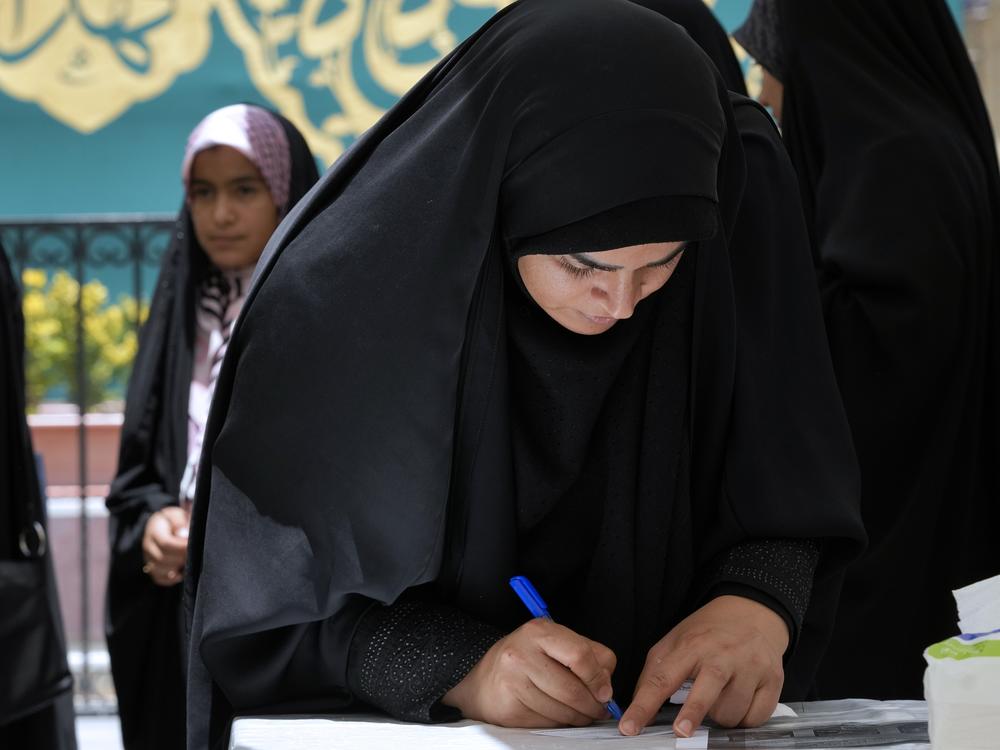Section Branding
Header Content
Iran heads to a runoff election between reformist Pezeshkian and hard-liner Jalili
Primary Content
DUBAI, United Arab Emirates — Iran will hold a runoff presidential election to replace the late hard-line President Ebrahim Raisi, an official said Saturday, after an initial vote saw the top candidates not securing an outright win.
The election this coming Friday will pit reformist candidate Masoud Pezeshkian against the hard-line former nuclear negotiator Saeed Jalili.
Mohsen Eslami, an election spokesman, announced the result in a news conference carried by Iranian state television. He said of 24.5 million votes cast, Pezeshkian got 10.4 million while Jalili received 9.4 million. Parliament speaker Mohammad Bagher Qalibaf got 3.3 million. Shiite cleric Mostafa Pourmohammadi had over 206,000 votes.
Iranian law requires that a winner gets more than 50% of all votes cast. If not, the race’s top two candidates will advance to a runoff a week later. There’s been only one runoff presidential election in Iran’s history: in 2005, when hard-liner Mahmoud Ahmadinejad bested former President Akbar Hashemi Rafsanjani.
Eslami acknowledged the country's Guardian Council would need to offer formal approval, but the result did not draw any immediate challenge from contenders in the race.
As has been the case since the 1979 Islamic Revolution, women and those calling for radical change have been barred from running, while the vote itself will have no oversight from internationally recognized monitors.
There had been calls for a boycott, including from imprisoned Nobel Peace Prize laureate Narges Mohammadi. Mir Hossein Mousavi, one of the leaders of the 2009 Green Movement protests who remains under house arrest, has also refused to vote along with his wife, his daughter said.
There’s also been criticism that Pezeshkian represents just another government-approved candidate. In a documentary on the reformist candidate aired by state TV, one woman said her generation was “moving toward the same level” of animosity with the government that Pezeshkian’s generation had in the 1979 revolution.
Raisi, 63, died in the May 19 helicopter crash that also killed the country’s foreign minister and others. He was seen as a protégé of Iran’s Supreme Leader Ayatollah Ali Khamenei and a potential successor. Still, many knew him for his involvement in the mass executions that Iran conducted in 1988, and for his role in the bloody crackdowns on dissent that followed protests over the death of Mahsa Amini, a young woman detained by police over allegedly improperly wearing the mandatory headscarf, or hijab.
The voting came as wider tensions have gripped the Middle East over the Israel-Hamas war in the Gaza Strip.
In April, Iran launched its first-ever direct attack on Israel over the war in Gaza, while militia groups that Tehran arms in the region — such as the Lebanese Hezbollah and Yemen’s Houthi rebels — are engaged in the fighting and have escalated their attacks.
Meanwhile, the Islamic Republic continues to enrich uranium at near weapons-grade levels and maintains a stockpile large enough to build — should it choose to do so — several nuclear weapons.
Despite the recent unrest, there was only one reported attack around the election. Gunmen opened fire on a van transporting ballot boxes in the restive southeastern province of Sistan and Baluchestan, killing two police officers and wounding others, the state-run IRNA news agency reported. The province regularly sees violence between security forces and the militant group Jaish al-Adl, as well as drug traffickers.

